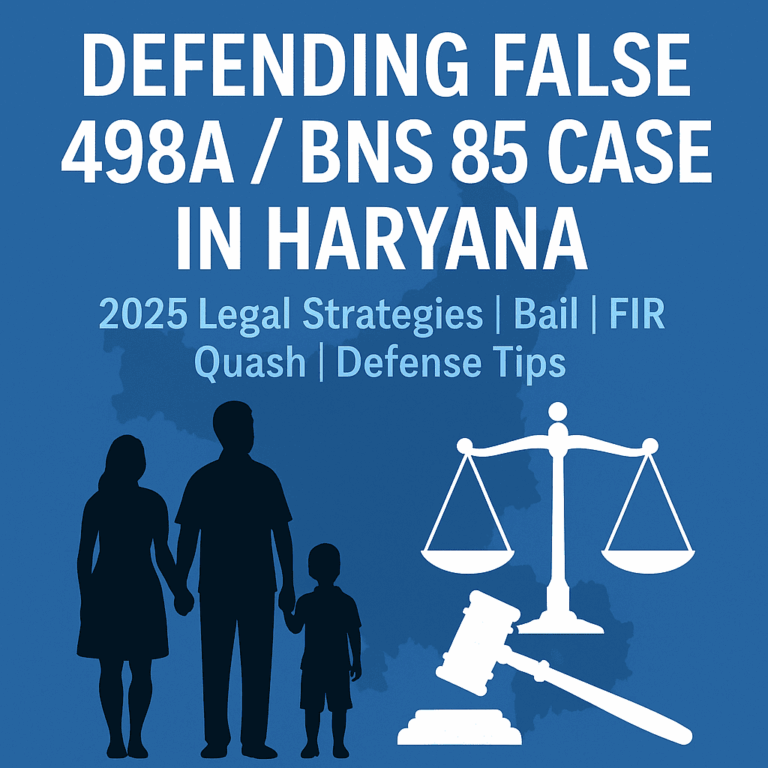This article is about Divorce Procedure in India.In the complex tapestry of Indian societal norms, the process of divorce remains a nuanced and often challenging journey. Advocate Vishal Saini, sheds light on the intricacies of divorce proceedings in India, offering clarity to those navigating this daunting path.
Understanding the Divorce Procedure in India: Insights from Advocate Vishal Saini
Types of Divorce: A Dual Path
The Indian legal system recognizes two main types of divorce: Contested Divorce and Mutual Divorce. In a Contested Divorce, disagreements on aspects like property division, child custody, or alimony prolong the process. In stark contrast, a Mutual Divorce is marked by the agreement of both spouses on all aspects of the separation, paving the way for a smoother legal journey.
The Road to Mutual Understanding
The process of Mutual Divorce, as outlined by Advocate Saini, involves a series of well-defined steps. It begins with the joint filing of the divorce petition and the First Motion Statement, followed by a Second Motion Statement after six months, leading to the final decree of divorce. This process reflects a collaborative approach, respecting the mutual decision of both parties.
Navigating the Contested Terrain
Contested Divorces, on the other hand, demand a more intricate approach. The process includes filing the divorce petition, responding to summons, trial commencement, interim orders, arguments, and finally, the court’s order. This path often requires patience and resilience, as it involves navigating through the complexities of legal disputes.
Emotional and Financial Considerations
Beyond the legalities, Advocate Saini emphasizes the emotional and financial aspects inherent in divorce proceedings. The emotional strain, child custody concerns, property division, and the lengthy nature of court proceedings in India add layers of complexity. Additionally, societal stigma, particularly impacting women, and the significant financial implications of legal fees, alimony, and lifestyle changes, are crucial factors to consider.
In Conclusion: A Path to New Beginnings
Advocate Vishal Saini’s insights offer a comprehensive understanding of the divorce process in India. His expertise underscores the importance of legal guidance, emotional support, and financial planning in these times of personal upheaval. While divorce marks the end of a marital relationship, it also opens doors to new beginnings and personal growth, guided by the principles of law and fairness.
FAQ :Divorce Procedure in India
- Q: What is the legal definition of divorce in India?
A: Divorce in India is the legal termination of a marital union between a husband and wife. - Q: What are the grounds for filing for divorce in India?
A: Grounds include cruelty, adultery, desertion, conversion to another religion, mental disorder, and more. - Q: How long does it take to get a divorce in India?
A: The duration varies; it can take anywhere from 6 months to several years, depending on the complexity of the case. - Q: Can both spouses mutually agree to divorce in India?
A: Yes, mutual consent divorce is allowed, where both parties agree to end the marriage. - Q: What is the minimum marriage duration required for filing divorce by mutual consent?
A: One year is the minimum duration of marriage required before filing for divorce by mutual consent. - Q: Can one spouse file for divorce without the other’s consent?
A: Yes, if there are valid grounds, one spouse can file for divorce without the other’s consent. - Q: What is the role of a family court in the divorce process?
A: Family courts in India handle divorce cases and related matters, ensuring a fair and just resolution. - Q: Can a wife seek alimony after divorce in India?
A: Yes, a wife can seek alimony, which may include maintenance, a lump sum amount, or property. - Q: How is child custody determined in Indian divorce cases?
A: Courts decide child custody based on the child’s best interests, considering factors like financial stability and emotional well-being. - Q: What is the legal procedure for obtaining a divorce decree in India?
A: The procedure involves filing a petition, court hearings, mediation, and, if needed, trial proceedings. - Q: Can a divorce decree be challenged in a higher court?
A: Yes, a divorce decree can be challenged in a higher court if there are legal grounds for appeal. - Q: How is property division handled in an Indian divorce?
A: Property division is determined based on factors like ownership, contributions, and the financial needs of both spouses. - Q: Can a divorce be granted if one spouse is living abroad?
A: Yes, as long as the court has jurisdiction and the necessary legal procedures are followed. - Q: Is it mandatory to hire a lawyer for divorce proceedings in India?
A: While not mandatory, it is advisable to have legal representation to navigate the complexities of divorce law. - Q: What are the rights of grandparents in a divorce case involving grandchildren?
A: Grandparents may seek visitation rights, and the court decides based on the child’s welfare. - Q: Can a person remarry immediately after obtaining a divorce in India?
A: Yes, once the divorce is finalized, individuals are free to remarry. - Q: Can domestic violence be a ground for divorce in India?
A: Yes, domestic violence is considered a valid ground for divorce. - Q: How is the division of debts handled in a divorce case?
A: Debts are divided based on factors like who incurred them and the financial capacity of each spouse. - Q: Can a divorce decree be obtained without physical court appearances?
A: In some cases, the court may allow online or virtual hearings, reducing the need for physical appearances. - Q: How does the court handle false allegations during divorce proceedings?
A: False allegations can affect the credibility of the party making them; the court may consider evidence to determine the truth. - Q: Are prenuptial agreements legally binding in India?
A: While not explicitly recognized, prenuptial agreements may influence the court’s decisions on property division. - Q: Can a divorce be revoked after the decree is granted?
A: It is challenging to revoke a divorce decree, and the process involves legal complexities. - Q: How are retirement benefits divided in a divorce case?
A: Retirement benefits are considered marital property and may be subject to division based on the court’s discretion. - Q: Can a husband claim maintenance from his wife in India?
A: Yes, under certain circumstances, a husband can claim maintenance from his wife. - Q: How are taxes affected by divorce settlements in India?
A: Tax implications vary, and it’s advisable to seek professional advice to understand the impact on taxes. - Q: Can a spouse refuse to participate in divorce proceedings?
A: While a spouse can refuse to participate, the court may proceed with the case based on the available evidence. - Q: Are foreign divorces recognized in India?
A: Yes, if the divorce is obtained legally in a foreign country, it may be recognized in India. - Q: What is the role of mediation in divorce cases?
A: Mediation aims to facilitate communication and negotiation between spouses, promoting an amicable resolution. - Q: Can a wife claim a share in her husband’s business in a divorce?
A: The court may consider the business as part of the marital property, and a wife may claim a share. - Q: How are gifts and inheritances treated in a divorce settlement?
A: Gifts and inheritances may be considered separate property, but the court’s decision depends on the circumstances. - Q: Can a divorce be obtained if one spouse is missing or untraceable?
A: Yes, the court may proceed with the divorce if reasonable efforts have been made to locate the missing spouse. - Q: What is the role of counseling in divorce proceedings?
A: Counseling may be recommended by the court to explore the possibility of reconciliation before granting a divorce. - Q: Can a divorce decree be obtained without citing specific grounds?
A: In a no-fault divorce, parties may not need to cite specific grounds, especially in cases of mutual consent. - Q: How is the residency requirement fulfilled for filing a divorce petition?
A: One of the spouses should have resided in the jurisdiction where the divorce petition is filed for a specific period. - Q: Can a divorced person claim a share in the ex-spouse’s future income?
A: Typically, future income is not considered in the division of assets unless specified in the divorce settlement. - Q: How are child support payments determined in Indian divorce cases?
A: Child support is determined based on the child’s needs, the paying parent’s financial capacity, and other relevant factors. - Q: Is adultery a criminal offense in Indian divorce cases?
A: While adultery itself is not a criminal offense, it can be a ground for divorce under civil law. - Q: Can a person contest a divorce petition after giving consent initially?
A: Contesting a divorce petition after initially giving consent may complicate the proceedings, and the court will consider the circumstances. - Q: How are joint debts handled in a divorce settlement?
A: Joint debts are typically divided between the spouses based on factors like who incurred the debt and the financial capacity of each. - Q: Can a divorce be granted if one spouse refuses to sign the divorce papers?
A: Yes, a divorce can be granted even if one spouse refuses to sign, but the process may take longer. - Q: Can a person file for divorce if the spouse is in jail?
A: Yes, incarceration can be a ground for divorce, but the court will consider other factors before granting it. - Q: How is child visitation scheduled in a divorce settlement?
A: Visitation schedules are determined based on the child’s best interests and the parents’ ability to provide a stable environment. - Q: Can a divorce be obtained if one spouse is mentally ill?
A: Mental illness can be a ground for divorce, and the court may consider expert opinions on the spouse’s condition. - Q: Can a person remarry before the divorce is finalized?
A: No, remarrying before the divorce is finalized is illegal and can have legal consequences. - Q: Can a spouse claim a share in the other’s future inheritance?
A: Generally, future inheritances are not considered in divorce settlements, but legal advice is recommended. - Q: How are joint bank accounts handled in a divorce case?
A: Joint bank accounts may be divided based on the contributions and financial needs of each spouse. - Q: Can a divorce be granted based on irretrievable breakdown of marriage?
A: In some cases, irretrievable breakdown of marriage is accepted as a ground for divorce, especially in mutual consent cases. - Q: Can a person file for divorce if the spouse is abroad?
A: Yes, as long as the court has jurisdiction, a person can file for divorce even if the spouse is abroad. - Q: How are business interests divided in a divorce settlement?
A: Business interests may be subject to division based on factors like ownership, contributions, and the financial needs of both spouses. - Q: Can a divorce decree be appealed in a higher court?
A: Yes, if there are legal grounds, a divorce decree can be appealed in a higher court for review and reconsideration.
















